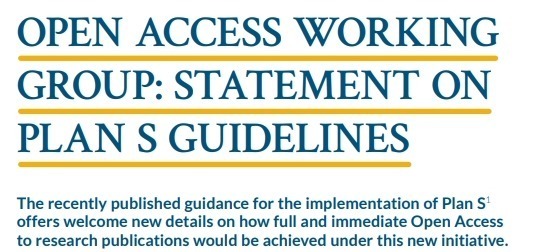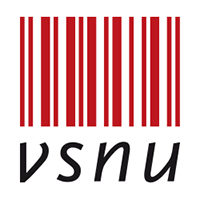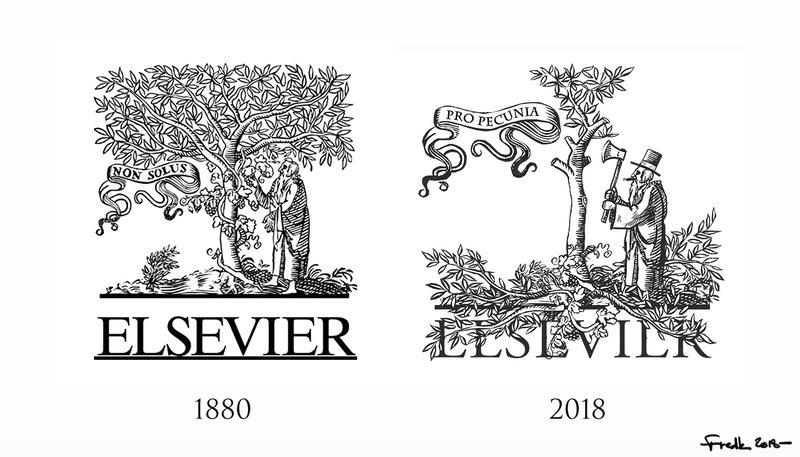Europe PMC's Response to the Implementation Guidance of Plan S
Europe PMC’s mission to support innovation based on open access content is well aligned with the fundamental principles of Plan S.
Send us a link
Europe PMC’s mission to support innovation based on open access content is well aligned with the fundamental principles of Plan S.
Open Access publishing is more widespread in Latin America than in any other region of the world, and continues to grow. We sat down with CLACSO's Open Access Advisor Dominique Babini to find out why.

An argument that Coalition members should favour, both in words and via their spending decisions, community-controlled, no-author-fee journals over commercially owned journals charging APCs, in order to give due consideration to the non-commercial elements of the scholarly publishing ecosystem.
Researchers have been left without access to new papers as libraries and the major publisher fail to agree on subscription deals.

Everyone appears to be behind open access, but scratch the surface and you'll find that it's something of a touchy subject in academia, says Rachael Pells.

Five Austrian institutions, including the Austrian Science Fund (FWF) and the Academy of Fine Arts Vienna as Higher Supporters, have come together to begin work on a national consortium to support the Open Library of Humanities.
The recently published guidance for the implementation of Plan S offers welcome new details on how full and immediate Open Access to research publications would be achieved under this new initiative.

David Kernohan previews Adam Tickell's advice to the minister on open access.

The Dutch universities will give open access an extra boost from 2019 by starting a pilot titled ‘You share, we take ca ...

Smaller publishers may struggle to afford costs of satisfying open-access initiative's rules.

This paper addresses the integration of a Named Entity Recognition and Disambiguation (NERD) service within a group of open access (OA) publishing digital platforms and considers its potential impact on both research and scholarly publishing.
Academics who offer their books free online reach many more readers and are cited slightly more often. Surprisingly enough, it has little effect on the sale of paper editions, positive or negative.
A response from Robert Kiley, Head of Open Research at the Wellcome Trust, to UCL’s “Response to Plan S”.
Plan U: A proposal to achieve universal access to scientific and medical research via funder preprint mandates.
Elsevier's Gaby Appleton expands on some of the themes she discussed during the recent STM Association's panel debate on 'The future of access" and the work Elsevier is doing in these areas.

Negotiations between the FinELib consortium and Taylor & Francis ended with no positive results. The end of the negotiations means that access to Taylor & Francis journals will end on 1 February 2019.
Read the joint response to the implementation guidance forPlan S as issued by three organisations representing early-career and senior researchers in Europe.
AmeliCA is a multi-institutional community-driven initiative supported by UNESCO that arises in response to the international, regional, national and institutional contexts of Open Access, which seeks a collaborative, sustainable, protected and non-commercial solution for Open Knowledge in Latin America and the Global South.
Open Pharma, which works with pharma to drive fast and transparent medical publishing, is encouraging pharmaceutical companies to use their influence more.

The proposal known as Plan S has the admirable aim of achieving full OA across a wide swath of journal publications. But the path currently suggested has serious drawbacks that could jeopardize nonprofit science societies.
Further to my other post earlier this week, I have added the additional points to my response letter to the Plan S implementation guidelines. These centre around monographs (9), REF involvement in Plan S (10), infrastructural support (11), the "time of publication" (12), clarification of the term "quality" (13), compliance of existing software with repository requirements (14), publisher deposition (15), and the ability to pursue defamation suits for wrongful attribution and reputational damage with the waiver of moral rights under CC BY 4.0 (16). If number 16 could be resolved, the open licensing landscape would be much clearer. The full letter is now available.

In 2018, the OLH launched the EmpowOA programme, designed to provide scholars and librarians working in the humanities with tools, spaces and cogent arguments about open access. Now, the OLH extend the functionality for the visitors to the website
The Ascent of Open Access analyses the Open Access landscape since the turn of the millennium. A key finding of the report is that the volume of Open Access articles has clearly been rising in recent years
More than 1 million studies are now downloaded from the site every month, mostly in neuroscience, bioinformatics and genomics.

I write to provide feedback in an individual capacity on the Plan S implementation guidelines.

Does it matter that there's no record of the Plan S leader publishing in a peer-reviewed journal?
Elsevier's role in the EU's Open Science Monitor is examined more closely.

Harvard Library and the MIT Libraries are in broad support of Plan S and its goals while also recomending certain adjustments to the implementation details.
Open Access mega-journals have in some academic disciplines become a key channel for communicating research. In others, however, they remain unknown. This article explores how authors’ perceptions of mega-journals differ across disciplines and are shaped by motivations associated with the multiple communities they function within.

Reporting results from a comprehensive survey of publishers in the German-speaking world, Christian Kaier and Karin Lackner explore the attitudes of smaller publishers towards open access, finding …
